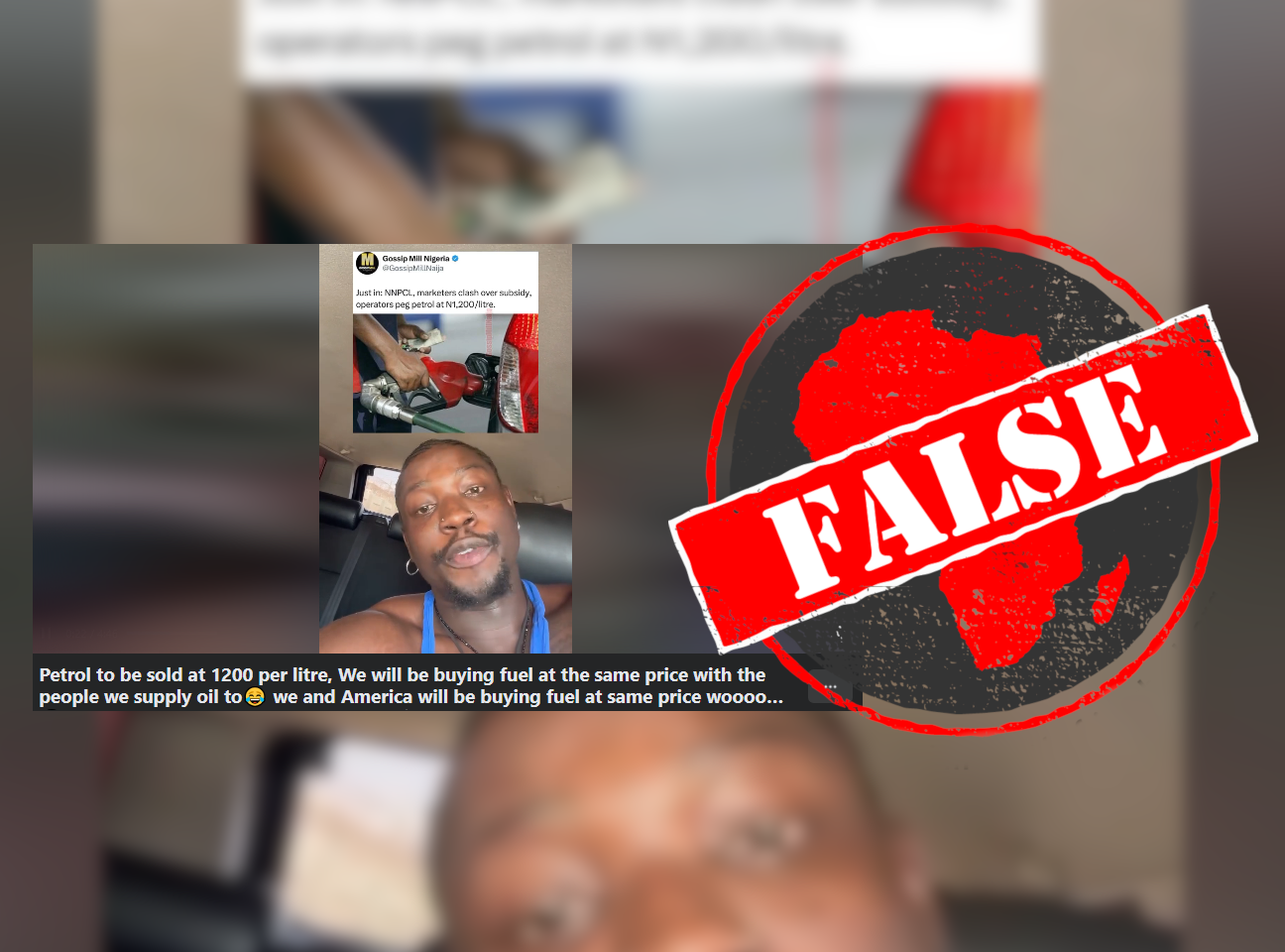IN SHORT: In 2023, the NNPC Limited raised fuel prices twice after a much-disputed subsidy fell away. But it says there are no plans to raise prices further, contrary to claims circulating on social media.
After years of enjoying the benefits of highly subsidised fuel, Nigerians are getting used to higher prices after a controversial subsidy was scrapped in 2023.
Before that, fuel was sold at N200 per litre. Following the removal of the subsidy, prices rose twice that year. In July, prices ranged from N598 to N617 per litre, depending on the place of purchase.
Transport fares rose during the December festive season following reports of fuel shortages and price increases.
Claims of costlier fuel have resurfaced in January 2024, with some social media users saying the price will double. This would have a significant impact on the cost of living, as well as likely causing a scramble to buy fuel.
One Facebook post reads: “Petrol to sell for 1200 a liter.”
The same claim appeared on Facebook here, here, here, here, here, here, here and here.
But is this true? We checked.

NNPC denies plan to sharply raise fuel prices
In a statement on its official X handle on 3 January, the state energy company NNPC Limited denied claims of an imminent steep increase in fuel prices.
The statement reads, in part: “NNPC Ltd. urges Nigerians to disregard unfounded rumours and assures them that there are no plans for an upward review of the PMS [petrol] price.”
The NNPC urged the public not to panic-buy, saying fuel was available nationwide.
Republish our content for free
For publishers: what to do if your post is rated false
A fact-checker has rated your Facebook or Instagram post as “false”, “altered”, “partly false” or “missing context”. This could have serious consequences. What do you do?
Click on our guide for the steps you should follow.
Publishers guideAfrica Check teams up with Facebook
Africa Check is a partner in Meta's third-party fact-checking programme to help stop the spread of false information on social media.
The content we rate as “false” will be downgraded on Facebook and Instagram. This means fewer people will see it.
You can also help identify false information on Facebook. This guide explains how.


Add new comment